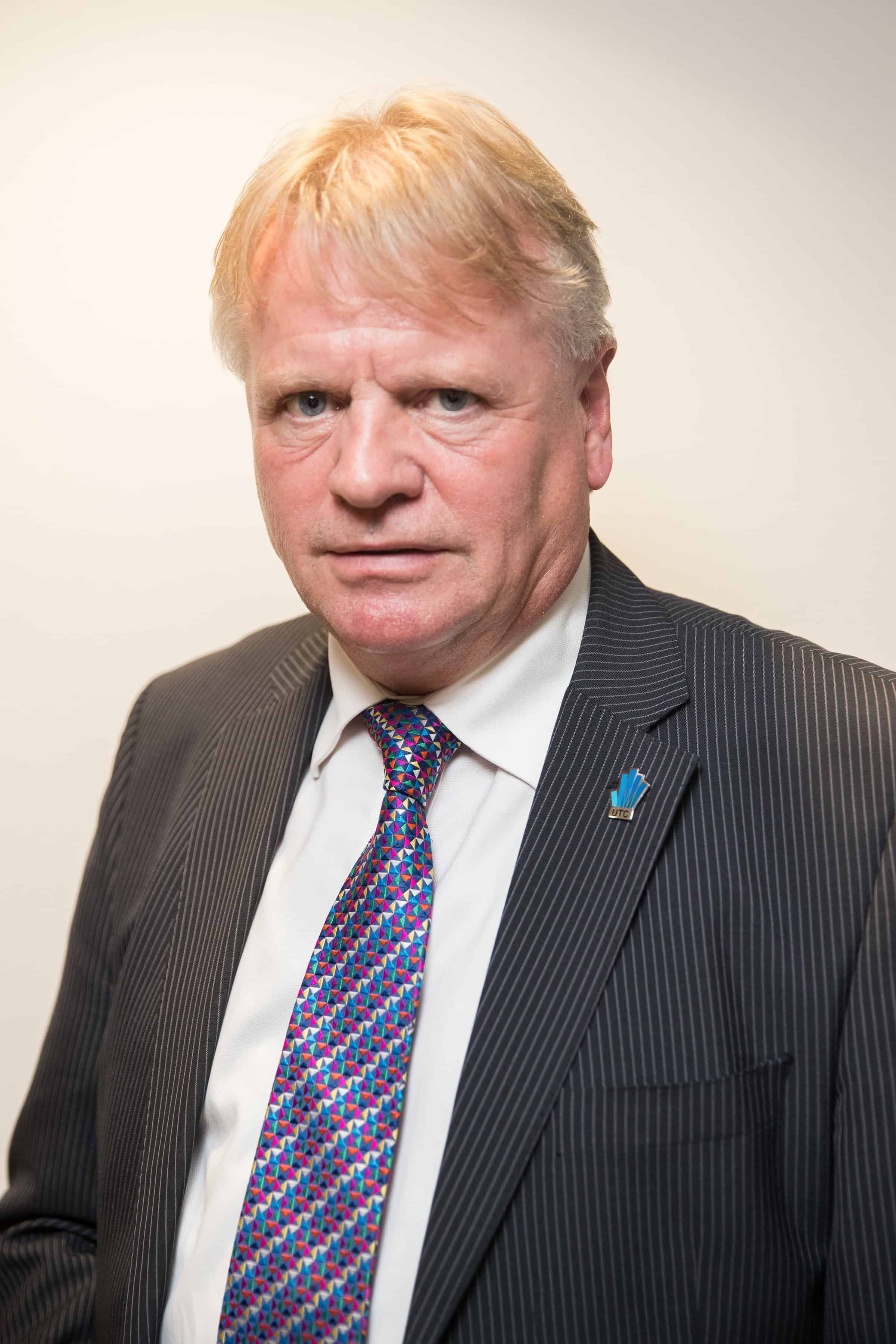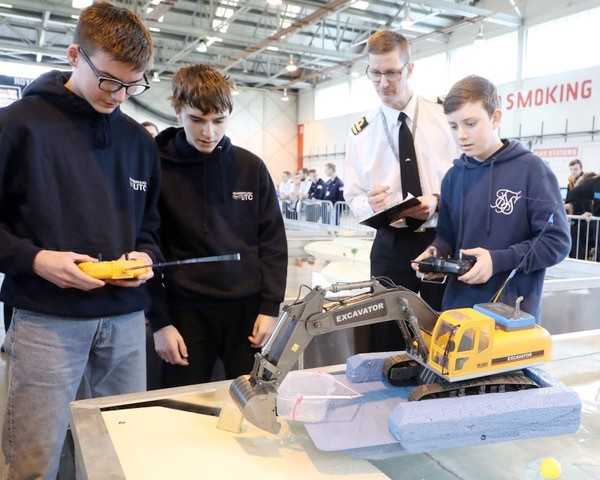 Ken Cornforth explains how University Technical Colleges (UTCs) are spearheading a new approach to teaching engineering and technical skills to schoolchildren in the UK and how this benefits both students and industry
Ken Cornforth explains how University Technical Colleges (UTCs) are spearheading a new approach to teaching engineering and technical skills to schoolchildren in the UK and how this benefits both students and industry
University Technical Colleges (UTCs) were inspired by Lord Baker and the late Lord Dearing in response to repeated demands from industry for more technically educated, work-ready young people. Employers have expressed concerns for decades that many young people leaving school do not have the attitudes, skills and knowledge required to make a rapid and successful start to working life. The demand for high quality technical education has not been satisfied since the abolition of technical schools in the 1960s. UTCs are now leading the way for technically minded students that want an education that will give them the skills and attitudes employers need and a clear route to their chosen career.

UTCs are non-selective, publicly funded technical secondary schools for 14-19 year olds and offer a curriculum which provides the opportunity to study for both academic and technical qualifications. There are 50 UTCs across England, each teaching one or more technical specialisms that meet the skills shortages in their region. These include amongst others: engineering, manufacturing, health sciences, cyber security and digital technologies.
UTCs are established where employers need them most and where there are pronounced skills gaps. The advantages of this positioning to employers are clear. Not only do they have a talent pipeline of well-motivated, appropriately qualified and industry aware recruits, they know that the UTC has been able to harness the employability and technical skills in their students required for rapid transition onto their own traineeship programmes.
Each year, there is a 40,000 shortfall of jobs in England that require skills in science, technology, engineering and maths. UTCs build their pupils’ expertise in these subject areas working closely with employers on real-life technical projects. These build students’ communication and team working skills - essential for the workplace. Employers also mentor students and provide opportunities for work experience and work place visits.
The curriculum at a UTC is integrated so that academic subjects relate to and reinforce the technical specialism. In order to have time for this curriculum UTCs have a longer school day. Governors nominated by a sponsor university and by local employers are trustees on the board of every UTC. They contribute their unique perspectives to the curriculum in terms of both knowledge and skills to be learned.
Many universities and employers help with curriculum design, sourcing equipment and involving their staff in teaching and mentoring at our UTCs. This offers UTC students an opportunity to understand how their learning fits the work place, and is developed to the next level in higher education.
The fact that a number of UTCs co-construct their curriculum with employers and offer practical experiences means that there is a secure link between the school experience and the work training and professional development that follows. Whether that is through project -based learning, mentoring support, specialist enrichment programs, work experience, soft skills training or regular industry awareness sessions, a UTC student will have had a significant number of employer encounters.

One example of an employer project is at the Engineering UTC Northern Lincolnshire in Scunthorpe. Students there are involved in a project with international titanium powder coating company Cristal, who have designed a real life challenge. Students are required to CAD design an LED light and then produce a prototype that they make in the school workshops. Engineers from Cristal are involved in every stage of the process, including the set up, the diagnostic assessment and the final presentations that students deliver in the boardroom. All of this lends itself to a deeper understanding of work in an engineering environment.
Neil Patterson, Principal of the UTC based at Silverstone, literally a stone’s throw from the iconic Formula 1 circuit, is perfectly placed to understand the needs of employers in his region – including a number of race teams and other high-performance technology companies. Before setting up and opening Silverstone UTC he was chief engineer at McLaren Automotive, responsible for the first of their Sports Series and Super Series models. His 14 years there taught him how to develop high-performing teams, which he has gone on to do at the UTC. “The measure of our success isn’t found in league tables – it’s found in the future”, says Patterson. “I always expected to be making a difference in this role, but I wasn’t expecting contacts in industry to be beating a path to my door like they are, asking if we have any candidates for their prestigious apprenticeships. We have placed students in F1 teams every year since we opened, and Aston Martin tell us that UTC students stand out because of their employability skills. They say that they ‘understand how their learning relates to the real-world and leave [UTCs] prepared for their future careers’.”
Evidence of success
In 2018 UTCs showed record results for their student leavers for the fourth year running. The latest data reveals that:
- Over 87% of UTC students have gone onto University, apprenticeships and full-time employment compared to a national average of 74%
- 74% of UTC leavers going to University have started STEM-related courses compared with a national average of just 46%
- Apprenticeships awarded are over four times the national average with 29% of UTC students going on to apprenticeships compared to just 7% nationally
- In 2018, over 500 apprenticeships have been awarded to UTC students by the UK’s leading employers including Aston Martin, Royal Navy, JCB, Balfour Beatty and Rolls Royce. UTC leavers going onto The Royal Navy accelerated apprenticeships in 2018 are starting on a £31k average salary.
Jake Stuchbury-Wass, who left UTC Sheffield City Centre last year, secured a place at the University of Cambridge. Speaking about his time at the UTC, Jake said:
“Studying at the UTC has really prepared me for my longer term university and career ambitions.”
Lucy Doran, who left UTC Oxfordshire last year, secured an apprenticeship with Culham Centre of Fusion Energy and said:
“I can’t believe how much experience I’m taking with me from my two years at the UTC. The employer led projects, the workshops, the chance to network with employers; it’s all given me an insight into jobs in the engineering industry and I can’t wait to begin my apprenticeship.”
Gavin Jones, Competence Manager at Cristal, sums up what the relationship with Engineering UTC Northern Lincolnshire means to them:
“The benefits that the relationship brings to Cristal is a more structured and career ready individual who has a more rounded understanding of engineering and who is better prepared for developing the skills involved. This gives the UTC students an advantage over other school leavers who may well understand the basics of engineering principles but have not had the hands-on practical time which is critical to a prospective employer. These practical skills can sometimes considered more important than higher academic grades in the recruitment process”
Ken Cornforth is Director of Education for the Baker Dearing Educational Trust. Baker Dearing licences and supports some 50 UTCs across England. Ken has also been one of Baker Dearing’s Senior Education Advisers with responsibility for UTCs in the North East of England since September 2015. An applied mathematician from Loughborough University, he has spent his whole career in teaching and was Principal of Pudsey Grangefield, a secondary school for 11-18 year olds, for eighteen years before retiring in the summer of 2014.
To find a UTC near you, please visit: www.utcolleges.org/utcs




Nanogenerator consumes CO2 to generate electricity
Whoopee, they've solved how to keep a light on but not a lot else.